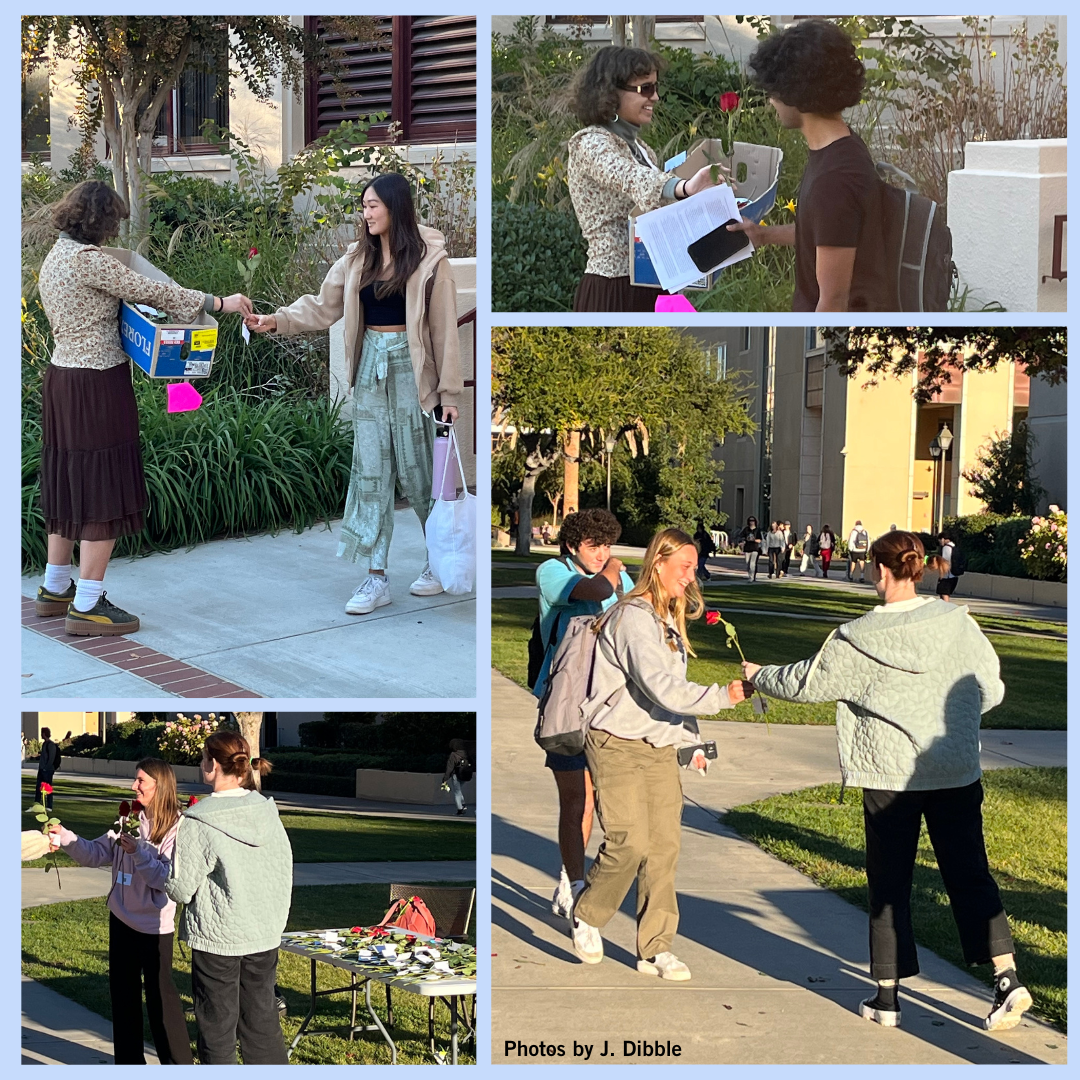
On Tuesday, Nov. 15, the Ethics Center Campus Ethics Team, in partnership with the SCU Wellness Center, set up a gathering space between Kenna and Benson for students, faculty, and staff on campus and distributed roses to those SCU community members who passed by. The roses were intended to raise awareness and support for student mental health. The Campus Ethics Team consists of a subset of the current Hackworth Fellows that focuses their work on the ways that ethics intersects with life on a college campus.
Roses for Restoration, as the event was called, was part of a larger strategy by this year's Campus Ethics Team to increase the interaction between the Ethics Center and everyday campus life through engagement with the SCU campus community. The idea arose from a conference on sports psychology attended by Callie O’Neill, one of this year’s Campus Ethics fellows. Flower therapy, O’Neill says, seems to have many benefits in the short and long term. Since SCU was approaching the end of the academic quarter and the anniversary of the tragic passing of multiple students last year, the Campus Ethics team thought the time was right to start a conversation surrounding campus mental health and wellness.

The event was no small feat, taking hours of work to finalize logistics and attach notes to each of the 500 roses that were handed out, as Kailyn Pedersen, another Campus Ethics fellow explains. The event was clearly worth the effort, especially once the fellows were able to see the impact it had on people. Pedersen stressed the importance of this low-stakes event, saying that while larger, more elaborate events can be helpful, it is also important to “meet people where they are.”
When it comes to the way that ethics is connected with mental health and wellness, O’Neill was concise: “Self-care is ethical.” Pedersen added, “As people who have the privilege of being educated on mental health, it’s our ethical obligation, if we have the resources, to do something about it and to contribute to our community in some way.” Both of them saw this event as an opportunity to link ethics to mental health and prompt conversations about both.
For both O’Neill and Pedersen, one of the best parts of the event was the reactions they received from people. “This event saw more genuine reactions from people engaged in new conversation,” says O’Neill. While many were taken aback by the impromptu flowers (prompting many responses of “what’s the catch?”) and some even rejected the gift, even more were pleasantly surprised by the act of kindness. O’Neill spoke about the importance of even these small interactions, saying that “often, in college and in life, everyday interactions can be glazed over and taken for granted.” These interactions were not so easily avoided, as the Campus Ethics team reminded everyone to spend a moment caring about themselves with a smile and a rose.
Each rose carried with it a small slip of paper with links to campus mental health resources and a quote from a list selected by the Campus Ethics Fellows. O’Neill and Pedersen each selected their favorite quotes, which are displayed below.
“It’s not all about healing yourself; it’s just as importantly about letting yourself heal.” -Terri Guillemets
"The chance to love and be loved exists no matter where you are." - Oprah Winfrey
Lucas Bush ’23, political science and ethnic studies major and a marketing and communications intern with the Markkula Center for Applied Ethics, contributed to this story.
